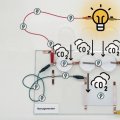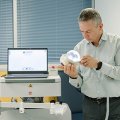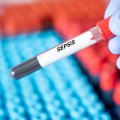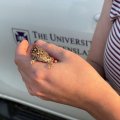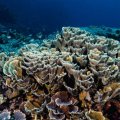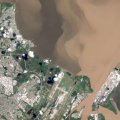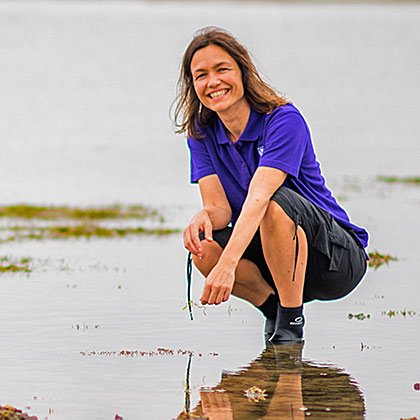
University of Queensland scientists are seeking to understand contaminant exposure of green turtles and evaluate their impact on near shore populations.
The initiative is part of a four-year research program which could find answers to the recent mass strandings and declining health of green turtles along Australian coastlines.
UQ Toxicologist Associate Professor Caroline Gaus said her research aimed to identify how contaminants entered the environment, and predict how those contaminants were likely to influence both wildlife and human health.
“The project specifically investigates the impact which land-based pollutants have on green turtle populations which call our near shore waterways home,” she said.
“The ultimate goal is to inform the decision-making processes behind how we manage environmental contamination in a way that eliminates or reduces any detrimental impact.
“If hazardous chemicals are released into the marine environment, the results will not only affect green turtles but also pose threats to other organisms, including humans who could be exposed to harmful contaminants via consumption of seafood”.
“The process involves humanely catching green turtles in urban, rural and remote sites, taking blood and other samples, and investigating these using a wide range of analytical methods.
“The data will then be integrated with other components of the program aimed to identify contaminant sources, and the health status of the populations.”
Using low-impact techniques commonly used for conservation surveys on marine turtles, the program has already resulted in the capture, tagging and measurements of more than 700 green turtles.
The Rivers to Reef to Turtles project is led by WWF-Australia, in partnership with the Banrock Station Environmental Trust.
WWF-Australia’s other partners in the project include UQ’s National Research Centre for Environmental Toxicology, the Centre for Tropical Water and Aquatic Ecosystem Research at James Cook University, Great Barrier Reef Marine Park Authority, the Queensland Government, the local traditional owner and natural resource management groups, and other supporters and volunteers in the local community.
Media: UQ Faculty of Health and Behavioural Sciences, Emma Mackenzie, (07) 3346 3033, e.mackenzie3@uq.edu.au. WWF-Australia: Mark Symons, msymons@wwf.org.au, 0400 985 571.
See also: Urgent action needed on dioxins, says toxicologist

